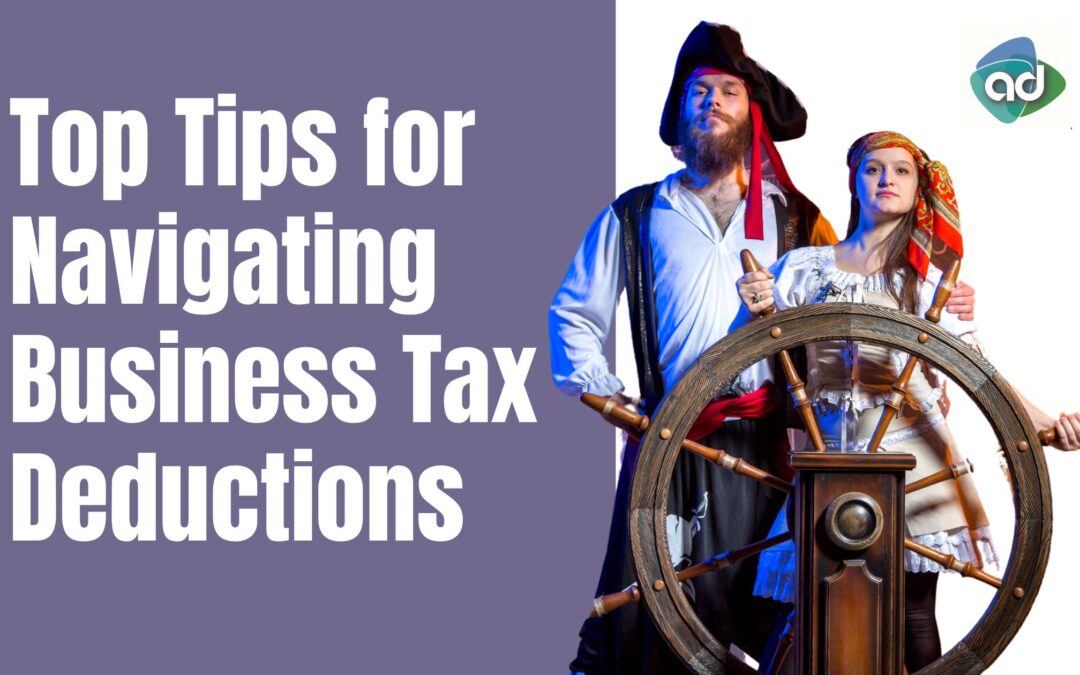When you’re running a business, understanding tax deductions can be the difference between a nice bit of savings or a hefty, unexpected bill from HMRC. Knowing what you can claim back isn’t just about ticking boxes—it can keep more of your hard-earned cash in your pocket and help your business thrive. But, let’s be honest—business tax deductions can feel like trying to crack a code, and the taxman doesn’t always make it easy. From office supplies to travel expenses, pensions to capital allowances, there’s a whole range of deductions you can claim if you know where to look. And if you don’t? Well, that’s where nasty surprises start creeping in. To help you dodge those HMRC headaches and maximise your savings, we’ve pulled together some top tips for navigating tax deductions. Whether you’re a sole trader, a small business, or a growing limited company, there’s something here for everyone. So, grab a cuppa and let’s get your tax affairs in order. By the time you’re done, you’ll have a clearer understanding of what you can claim.
1. Start Early – Don’t Leave it Till the Last Minute
Tax season might feel far away, but you know what they say: “Failing to prepare is preparing to fail.” The earlier you start organising your records, the easier it will be come crunch time. Keep track of receipts, invoices, and any eligible deductions. Waiting until January is a sure way to invite unnecessary stress. Start by creating a system—whether that’s a good old-fashioned folder or one of those snazzy cloud-based accounting systems like Xero. It’ll keep you from doing the mad dash come tax deadline.
2. Know What You Can Deduct
Understanding what expenses you can claim can seriously reduce your tax bill. Here are some basics:
- Office expenses – Furniture, stationery, rent, utilities, even that cup of coffee for client meetings.
- Travel – Mileage, public transport, even parking fees (but not those fines!).
- Marketing and advertising – Business cards, websites, social media ads.
- Professional services – Accountant fees (yes, we’re deductible too), solicitors, business consultants.
If you’re not sure what qualifies, HMRC has a handy guide on allowable expenses.
3. Don’t Forget Capital Allowances
Got new machinery or computers? That’s where capital allowances come in. The Annual Investment Allowance (AIA) lets you deduct the full value of qualifying items you buy and use in your business. For 2024, the AIA limit is a whopping £1 million per year, so if you’re investing in business equipment, make sure you’re claiming that!
4. Claim for Working from Home
Thanks to the rise of remote work, more business owners are working from their kitchen tables. If you’re one of them, good news! You can claim part of your household expenses (think heating, electricity, broadband) as business expenses. It’s all about proportion—how much space and time you use for work. There’s also a simpler flat rate, if calculating the exact expenses makes your head spin. HMRC has the details on working from home expenses.
5. Pension Contributions – Tax Relief in Your Pocket
Investing in a pension isn’t just good for your future self; it’s a tidy tax break for present-day you. Contributions to your pension scheme can reduce your taxable income, meaning less tax to pay now while you build your nest egg for later. It’s like a win-win with a cherry on top. Make sure you’re getting the most from this by checking out the pension tax relief rules.
6. Use an Accountant—Trust Us, It’s Worth It
This one’s a no-brainer, really. Tax laws change all the time, and while we all love a bit of DIY, some things are best left to the pros. An accountant can help you spot deductions you didn’t know existed, stay on top of changing rules, and file everything on time. Plus, it means you get to spend more time running your business rather than stressing over receipts. At Accounts Direct, we can help you sort the lot—whether it’s keeping your books tidy or making sure you’re not overpaying the taxman. Give us a bell and see how we can make tax time a breeze.
7. Stay on Top of Deadlines
Missing a tax deadline is a sure way to get hit with penalties and interest. Don’t do it! Set reminders in your calendar (digital or old-school paper), and keep an eye on key dates:
- 31st January – Self-Assessment deadline for online returns and payments.
- 5th April – End of the tax year.
Miss the deadline? That’s £100 out of pocket straight away—and more if you’re late by three months. Yikes! You can find the full list of dates on HMRC’s tax deadlines page.
8. Keep Good Records—Seriously
Good record-keeping isn’t just for peace of mind; it’s a legal requirement. HMRC recommends keeping your records for at least five years after the deadline of the relevant tax year. So, keep everything—receipts, invoices, bank statements—so if HMRC ever comes knocking, you’re ready. Plus, if you’re using cloud-based accounting software, it’ll save everything digitally and automatically, meaning less chance of you losing stuff. Nice and easy! Navigating business tax deductions might not be your idea of fun, but it doesn’t have to be a nightmare either. By planning ahead, knowing your deductions, and getting a professional on board, you’ll be able to keep more of your hard-earned cash. Need help with your 2024 tax return? Get in touch with Accounts Direct, and let’s get it sorted!

